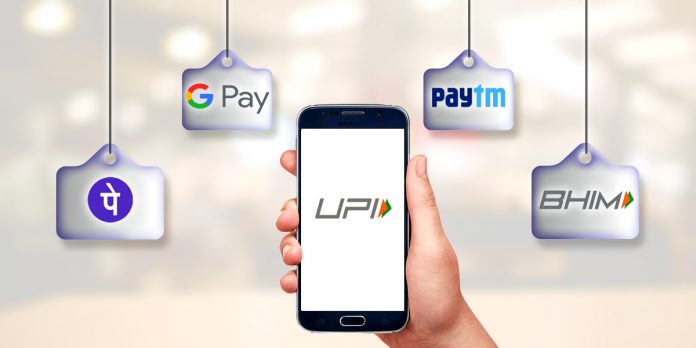This article is written by Smaranika Sen pursuing BA LLB from Kolkata Police Law Institute. This is an exhaustive article which deals with the grey area with respect to payment wallets.
Table of Contents
Introduction
With the passing of each day, we are observing the enormous expansion in the field of payment wallets. It has brought a whole new dimension in easy online transactions, transferring money, etc. For the past two years, when the whole world has been encouraging no-contact payments and online payments, payment wallets have been considered a boon. However, everything which has made our lives easier has also come along with some complications. Similar is the case with payment wallets. There is a grey area in the field of payment wallets.
Payment wallets: an overview
Payment wallet is known by various terms. It is popularly known as an e-wallet or digital wallet or cyber wallet etc. A payment wallet is a digital software used for online transactions, purchases, and transferring money into different bank accounts. This has almost replaced going physically to the bank for any transactions, depositing money into the account, etc. It has also made people undergo a cashless experience. Few examples of payment wallets are Amazon Pay, PayPal, Google Pay, etc.
The money is being stored digitally in a wallet. The wallet mainly stores the details of the user’s bank account, user’s transactions, and all debit and credit card information. By storing up the data, the wallet helps in immediate transactions. One does not need to put the details of a bank account every time while making any transaction. The wallet consists of a PIN which enables basic security for transaction purposes. Some payment wallets also store biometric information for a better-secured service.
How to make payment through a payment wallet?
Anyone who is required to use payment wallets has to first download any of the e-wallet apps. The e-wallet app can be downloaded into a person’s mobile devices, tablets, laptops, or any other compatible devices. After downloading, one has to store the details of a debit card or credit card, or bank account in the downloaded app. It has to be kept in mind that the user cannot use multiple methods of transferring money in one app. The user has to use one default payment method i.e.either by debit card or whatever the user wishes to. However, if any user wants to use any other payment methods then they can change the default payment option to their desired method.
While making payment online, the user has to put the other party’s information on who is at the receiving end. Once the information is stored, the user needs to follow the instructions given as per the app to make the payment. However, in some apps, both the user and the party on the receiving end need to have installed the same app and stored their respective information to make any online transactions.
What are the different types of payment wallets
There are mainly three different types of wallets:
- Open wallets: In this type of wallet, the wallet can be used both by the bank and the third party. Here, the user can make online transactions, payments, etc, and still can withdraw the funds in cash format. An example of such an open wallet is Paypal.
- Closed wallets: In this type of wallets, the merchant is specific. The user cannot use such a wallet at his discretion in transferring money to a third person’s account. The transaction can be done only between the user and the specific merchant. It also does not allow the user to withdraw funds in cash. However, recently some closed wallets are allowing people to withdraw funds in cash. An example of such a closed wallet is Amazon Pay.
- Semi-closed wallets: In this type of wallets, the user can make transactions with multiple users. The only condition is that both the user and the party on the receiving end must have the same app installed on their devices. Semi-closed wallets allow users to deposit funds in the bank account. However, it does not allow the withdrawal of funds in cash. An example of such a semi-closed wallet is Google Pay.
Why is it a grey area?
The introduction of cashless payments has made our life much easier. These online payment systems have made our life convenient, faster and making transactions have never been easier. Often in businesses, one needs to employ a cashier or someone who would take charge of handling the transactions and accounts. Online transactions have made it easier for such businesses which cannot afford many employees and are just starting up.
However, digital transactions also have a lot of complications. The first and the foremost being a lot of merchants and businesses are still reluctant to use the cashless method of transactions. Even a lot of old-aged people are not quite familiar with such modern technology. They still prefer to go physically to the bank and deposit money and exchange things in place of cash. This has led to the cashless payments being limited to few merchants and people. The merchants believe that a huge number of people are still reluctant to use digital payments, thus they do not prefer using them. This has also led the users of semi-closed wallets to use more cash payments due to the limitation of the number of merchants. The same is the case with closed wallets and open wallets.
Digital payments are most popular because of their easy transaction procedure. However, such easy transactions at times come with a little extra charge that one has to pay for. Some digital payment apps require their users to pay a little extra charge for transactions. This has led a lot of people to avoid digital payment apps. People are not quite fond of paying such extra charges because they believe that it’s not a proper use of money.
A lot of digital payment is being done by Near Field Communication devices. They act as electronic identity documents. The NFC helps in cashless payments. This technology is, however, very new and a lot of merchants and people are still not aware of it. The usage of NFC is very minimal. Also, one of the concerning sides is that such modern technology would not be friendly to a lot of merchants and users.
Another most vulnerable side of digital payment is cyber crimes. Online transactions can be very easily exploited by criminals. They can steal money with one single click. This is very concerning as the risk is quite high as compared to the money stored in banks. A lot of payment wallets are stored in our mobiles, tablets, laptops, etc. If any hacker breaks through our system, then they can easily steal all the money. With the advancement of technology, hacking has now become very frequent. In the past year, a lot of cases have come up where people have been fooled by cyber criminals and money has been stolen from their accounts. It was observed that a Paytm user from Mumbai lost 1.7 crores and a teacher from Bhopal lost Rs. 45,000 and many more were the victims of such scams. Due to the pandemic, many people started online businesses and many of them have also suffered from such scams.
Some people also commit identity theft and illegally act like someone. It has been observed that a lot of fake online stores are there in the market which fools the customer and takes money.
The money in digital wallets is often observed as untraceable. Many times, huge amounts of money are being used for illegal purposes and it cannot be traced by police. Even the stolen money from online users goes untraced. This creates a lot of confusion and users remain in fear of using payment wallets.
Another concerning side is that payment wallets solely depend upon the Internet. If there is any network issue, the digital payments get stopped. At times, it is also observed that a lot of payment wallets are not under usage due to server problems. This causes a lot of delays in online transactions at times. Sometimes, even if the payment is made from one end the money does not reach the receiving party and this creates confusion.
In the year of 2001, Drazen Prelec and Duncan Simister of MIT published a result that shows that a lot of people have admitted that the real cash in hand makes them save more but digital cash makes them prone to expenditure. Though this is a physiological aspect, yet for this, a lot of people from the middle-aged and old generation are not quite fond of using payment wallets or digital wallets.
What are the laws relating to payment wallets in India?
The Reserve Bank of India has been regulating payment wallets in India. They issue the license for a payment wallet to execute their service in the online payment systems. The RBI has also issued many guidelines lately regarding the payment wallets. The guidelines stated that all the payment wallets or mobile wallets will be considered interoperable. They also added that the customers can use mobile wallets for the withdrawal of cash at ATMs. RBI also stated that soon mobile wallets will be joining RTGS and NEFT payment systems. Most importantly, now payment wallets can be used for depositing cash in bank accounts and withdrawal from the bank account as well.
Cyber theft has also been a crucial problem for many users. Even at times, identity theft has been observed. Identity theft comes under the purview of forgery. The punishment for forgery is dealt with under both the Indian Penal Code, 1860 and the Information Technology Act, 2000. The Information Technology Act 2000 mainly deals with cyber crimes, with certain exceptions it gives punishment of imprisonment for three years. However, it has been observed that at times offenses under the Indian Penal Code and the IT Act lead to an ambiguous situation where certain offenses are bailable and certain are not. In various cases, there has been a conflict between the IPC and the IT Act and there are certain judgments of the Supreme Court that the IT Act will be regarded in such matters. In Gagan Harsh Sharma v State of Maharashtra, it was observed that there lies an ambiguity among the provisions of the Indian Penal Code and the Information Technology Act, 2000. The main question that arose was whether the provisions of the Indian Penal Code could be applied for the same offenses in the case, when the same offenses come under the purview of the Information Technology Act, 2000. The Honorable Judge stated that if in certain cases there lies a special mechanism that deals with the offenses that come within the purview of the Information Technology Act, 2000, then the application of the Indian Penal Code for the same set of offenses is uncalled for.
Future of Payment Wallets
Even a few years back payment wallets were unnoticed and not so important in the vast land of commercial banks, payment banks, internet banking, etc. However, in the year 2021, the payment wallet seems to have become one of the most important systems of online payments and banking systems. The future from now on seems more expanding in nature. It has been observed that more and more people are using payment wallets and it is increasing day by day. From the last year, cashless payments have emerged enormously due to the ongoing pandemic. Apps like Google Pay and Phone Pe are observed to be dominant in the payment sector since the previous year.
However, still, a section of people are not fond of using digitized payment systems due to cyber theft, lack of internet, and other external factors. The most important being cyber thefts and lack of internet. The technology should be made more advanced and secure so that hackers cannot breach the system. Also, at times it has been observed that the users are not judiciously using payment wallets. They have to become more aware of its usage. It should also be considered that a huge lot of people are still not having proper internet services especially in the rural areas. If there is no internet, then payment wallets become of no use. So, the internet has to be made accessible to a lot more people.
The future also calls for more advancement in the field of payment wallets.New features and perks need to be included in the wallet system so that more people tend to use the payment wallets.
Conclusion
In the modern era of 2021, the payment wallet is one of the most useful introductions in our lives. It goes without saying how easy it has made our lives and convenient in terms of payments. Even a few years back, we had to stand in a long queue to deposit any money or for carrying out transactions. Now, everything can be accessed just while sitting in bed. It has also helped a lot of money-saving in the businesses where a huge section of money used to go to the middlemen for cash transferring and supplying. However, more strict laws are needed to be implemented in the field of cyber thefts. Lastly, with the advancement of technology in the field of payment wallets or digital payments, there should also be an advancement in tracking the hackers and preventing them from committing cyber crimes.
References
1.Database
LawSikho has created a telegram group for exchanging legal knowledge, referrals and various opportunities. You can click on this link and join:
 Serato DJ Crack 2025Serato DJ PRO Crack
Serato DJ Crack 2025Serato DJ PRO Crack









 Allow notifications
Allow notifications


